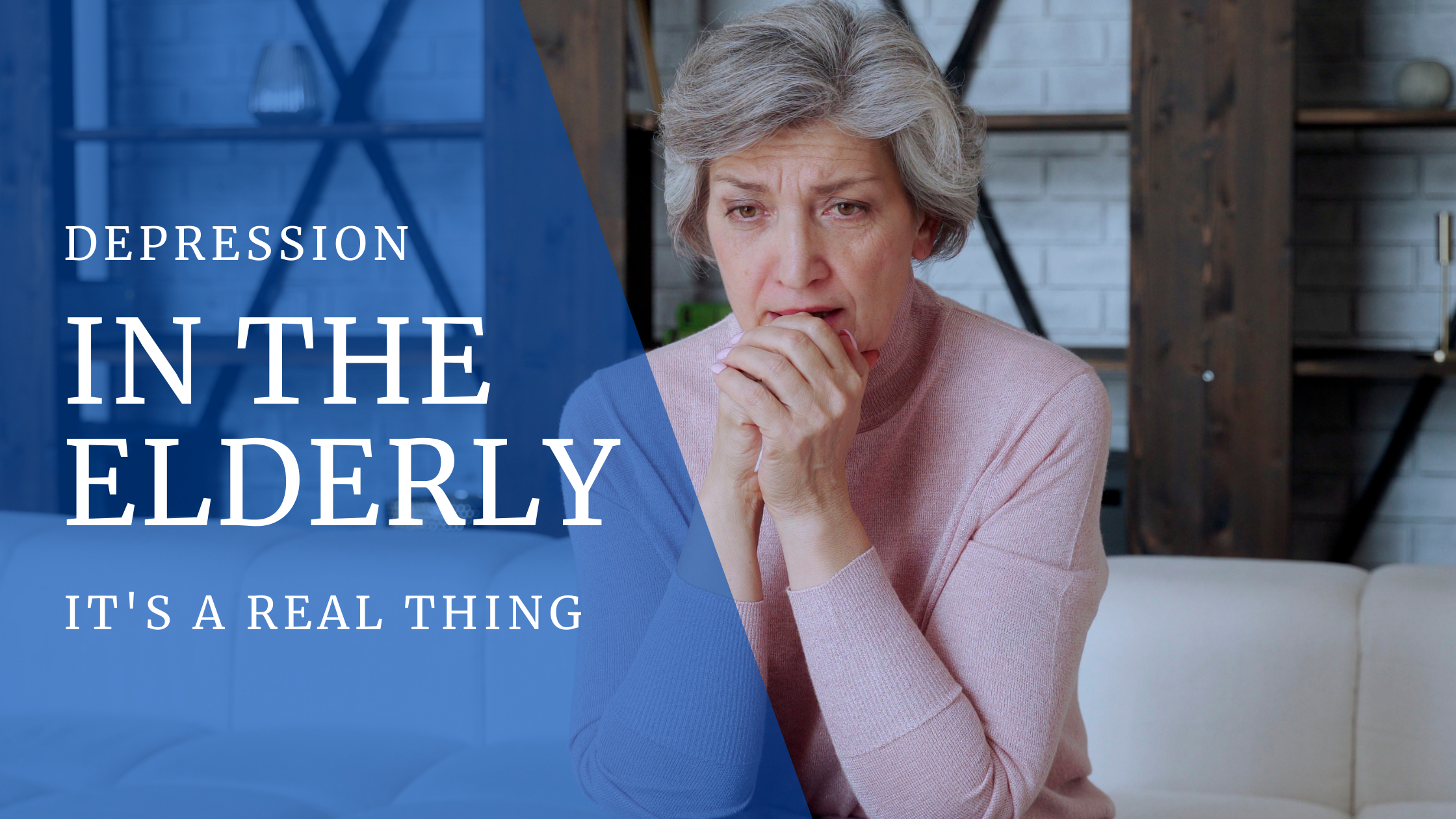
Despite what many may think, depression is not something that just comes with age and should be expected. Approximately 18.5% of adults ages 65 and older experience varying degrees of depression. Those who are living with a chronic disease, which is roughly 80%, are at an increased risk of depression. As people experience a higher risk of depression as they age and face illness, it is important to recognize and address the signs of depression as they begin to surface.
How Do You Recognize Depression In The Elderly?
Depression can manifest in several different forms. Depression is different from grief and sadness, it is constant and occurs for an extended period of time. The following are things to be aware of:
- Inability to sleep
- Feelings of worthlessness
- Constant fatigue and low energy levels
- Loss of appetite
- Weight loss
- Losing interest in hobbies and activities
- Inability to find joy
- Chronic headaches, body aches, and digestive system problems
- Excessive sleeping
- Impaired cognition and ability to focus
- Pessimism and desperation
- Suicidal thoughts and attempts
What Causes Depression In Older Adults?
It can be difficult to determine whether a person is experiencing chronic pain, sadness, grief, or depression. When a person is in a constant state of depressive symptoms, this is typically a sign of depression. Understanding why older adults experience depression is vital to helping the individual. Older adults may experience depression because of loneliness, isolation, decreased sense of self, confidence, insecurity, fears, death of a loved one, and health problems. Health problems may include Alzheimer’s disease, medication side effects, cancer, multiple sclerosis, heart disease, diabetes, thyroid disorders, and more.
How Do Seniors Overcome Depression?
Overcoming depression doesn’t happen overnight. It will likely take some time and a combination of strategies and therapies for an individual to fully function again. There are several things that can help overcome depression:
First, seek professional advice. Talking to a professional that specializes in mental health can help determine if the person is depressed, and what level of depression the person is dealing with. They can then prescribe treatment and therapies that can assist the individual.
Second, find meaning. It can be difficult to figure out, “what’s next” as we age, are retired, and have transitioned to a Senior Living community. However, there are many hobbies, activities, and ways that seniors can give back. Individuals can talk with friends, loved ones, and the Senior Living community activities director or administrator about daily activities that they can participate in.
Take care of yourself. Engaging in healthy activities will strengthen the mind and body and increase motivation. This helps combat depression, sadness, and grief. This can be done by engaging in daily exercise and movement, eating nutritious meals, obtaining sufficient sleep, and enjoying the outdoors.
Surround yourself with a strong support system. One of the triggers of depression is isolation and feelings of loneliness. Individuals who feel a part of a community and are surrounded by supportive peers are significantly less susceptible to depression. In fact, only 1-5% of older adults who live in a community suffer from major depression. A Senior Living community can provide support, activities, daily assistance, a strong social environment, and aid in feelings of fulfilment and joy.
Consider The Cottages Senior Living
The Cottages Senior Living will provide the best environment for your loved one. Their small, home-like atmosphere and high staff-to-resident ratio helps ensure that the residents are well cared for, and their needs are addressed. The Cottages Assisted Living and Memory Care homes only have a maximum of 16 residents per home, which enables the staff to give more personalized care and the residents to get to know one another. The home-cooked meals not only follow dietary guidelines but are delicious and nutritious. The activities are tailored to the residents’ wants and desires, creating life-enriching moments. The administrator has an open-door policy and is never too busy to meet with family or answer questions. The home and atmosphere feel calm and happy and look like a home. The Cottages are secure but never feel like an institution or hotel. The Cottages Assisted Living and Memory Care have received numerous national and state quality awards for their well-run homes, exuding superior care.
If you are looking for an exceptional assisted living or memory care home, look no further. Call The Cottages today to schedule a tour or speak with one of our experts! (208) 475-1805.
References
HelpGuide.org (2022). Depression in Older Adults. Retrieved from https://www.helpguide.org/articles/depression/depression-in-older-adults.htm
Centers for Disease Control and Prevention. (2021). Depression is not a normal part of growing older. Retrieved from https://www.cdc.gov/aging/depression/index.html
Schedule a tour!
We welcome the opportunity to speak with you about the care you or your loved ones will receive at one of our Idaho locations.
If you have any questions, would like to tour one of the Idaho assisted living homes, or receive a no pressure consultation with one of our licensed Administrators, please fill out the form below. Please mention which location or locations are of interest to you.



